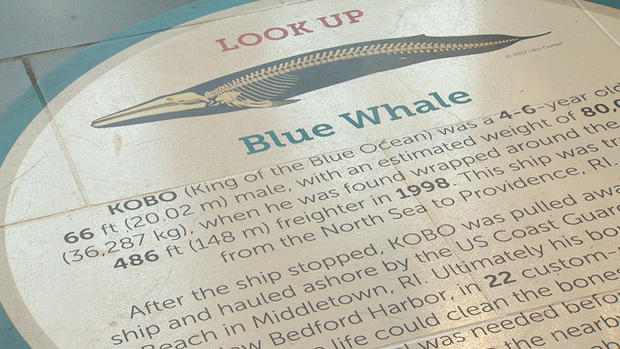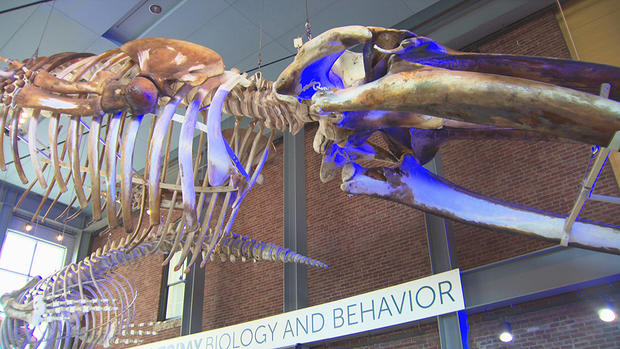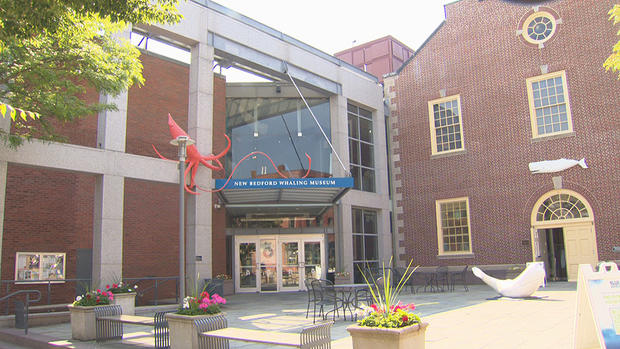It Happens Here: New Bedford Whaling Museum Is Home To Biggest Whale Species In The World
NEW BEDFORD (CBS) - New Bedford is known as "The Whaling City" for its time as one of the most important whaling ports in the world.
In fact, Herman Melville is said to have gotten the inspiration for Moby Dick here.
But there's another giant whale in town and he is the real deal. He's Kobo, which stands for "King of the Blue Ocean," and you can find him at the New Bedford Whaling Museum.
Kobo isn't just any old whale. He's a blue whale, the biggest whale species on the planet. Getting his 66-foot skeleton inside the museum was no small feat.
It all started back in 1998. Researchers think Kobo was around 5 years old when he got hit by two different tankers. The second unknowingly dragged his body from Nova Scotia, all the way into Narragansett Bay.
"The guy driving the pilot boat is the one who noticed this whale wrapped around the bow of the ship and phone calls start, radio calls start," Bob Rocha, the museum's associate curator, told WBZ-TV. "They finally decide to pull this thing up onto shore they figure out what it is. The necropsy starts and folks are coming in from all over the place because it's a blue whale in the north Atlantic Ocean and they want body parts to study."
"My overwhelming memory was a lot of people watching what was going on, a good-natured crowd but thousands of people," Dr. Michael Moore, who performed the necropsy, told WBZ.
There was one problem.
"They did a pretty good job of getting the bones clean. They didn't get all the oil out though," Rocha said.
Twenty-three years later and Kobo's skull is still leaking oil!
In fact, Kobo leaks so much, the museum set up a special tube that catches most of the oil and dispenses it into a beaker.
"I like the fact that that skeleton is oily because it adds to a person's experience coming in, being able to smell the oil, get a sense of what it might have been like to be stuck on a whale ship for 3 years," Rocha said.
The whaling museum says Kobo will probably continue to leak oil well into the year 2060.
The New Bedford whaling industry was powered mostly by Portuguese and Cape Verdean immigrants and while a whaling ship hasn't operated here since 1925, the by-gone industry still shapes the city's identity today.
"We know when the whaling industry here ended but the multi-cultural part of the city certainly hasn't," Rocha told WBZ. "This city is an important part of Massachusetts history and U.S. history because we really did light the world for so many decades."






